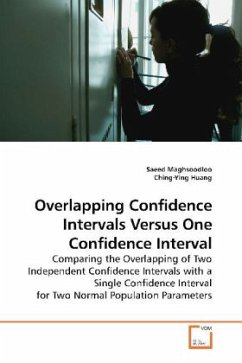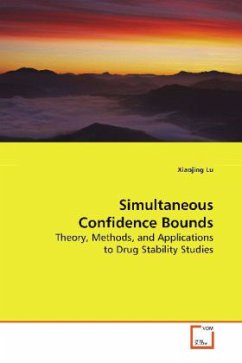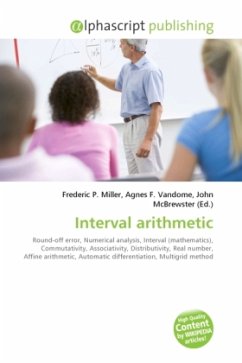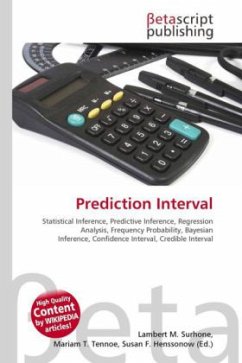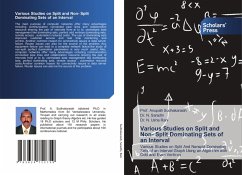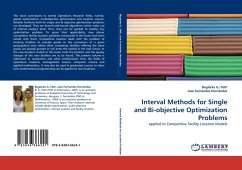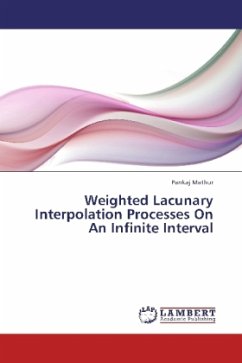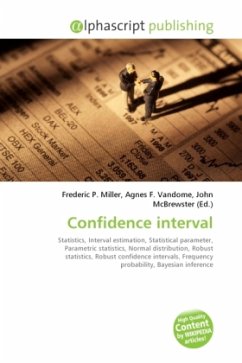
Confidence interval
Versandkostenfrei!
Versandfertig in 6-10 Tagen
23,99 €
inkl. MwSt.

PAYBACK Punkte
12 °P sammeln!
In statistics, a confidence interval (CI) is a particular kind of interval estimate of a population parameter. Instead of estimating the parameter by a single value, an interval likely to include the parameter is given. Thus, confidence intervals are used to indicate the reliability of an estimate. How likely the interval is to contain the parameter is determined by the confidence level or confidence coefficient. Increasing the desired confidence level will widen the confidence interval. A confidence interval is always qualified by a particular confidence level, usually expressed as a percenta...
In statistics, a confidence interval (CI) is a particular kind of interval estimate of a population parameter. Instead of estimating the parameter by a single value, an interval likely to include the parameter is given. Thus, confidence intervals are used to indicate the reliability of an estimate. How likely the interval is to contain the parameter is determined by the confidence level or confidence coefficient. Increasing the desired confidence level will widen the confidence interval. A confidence interval is always qualified by a particular confidence level, usually expressed as a percentage; thus one speaks of a "95% confidence interval". The end points of the confidence interval are referred to as confidence limits. For a given estimation procedure in a given situation, the higher the confidence level, the wider the confidence interval will be. The calculation of a confidence interval generally requires assumptions about the nature of the estimation process it is primarily a parametric method for example, it may depend on an assumption that the distribution of the population from which the sample came is normal.



